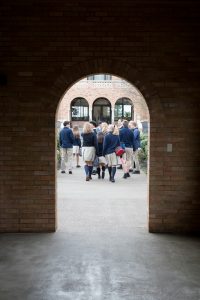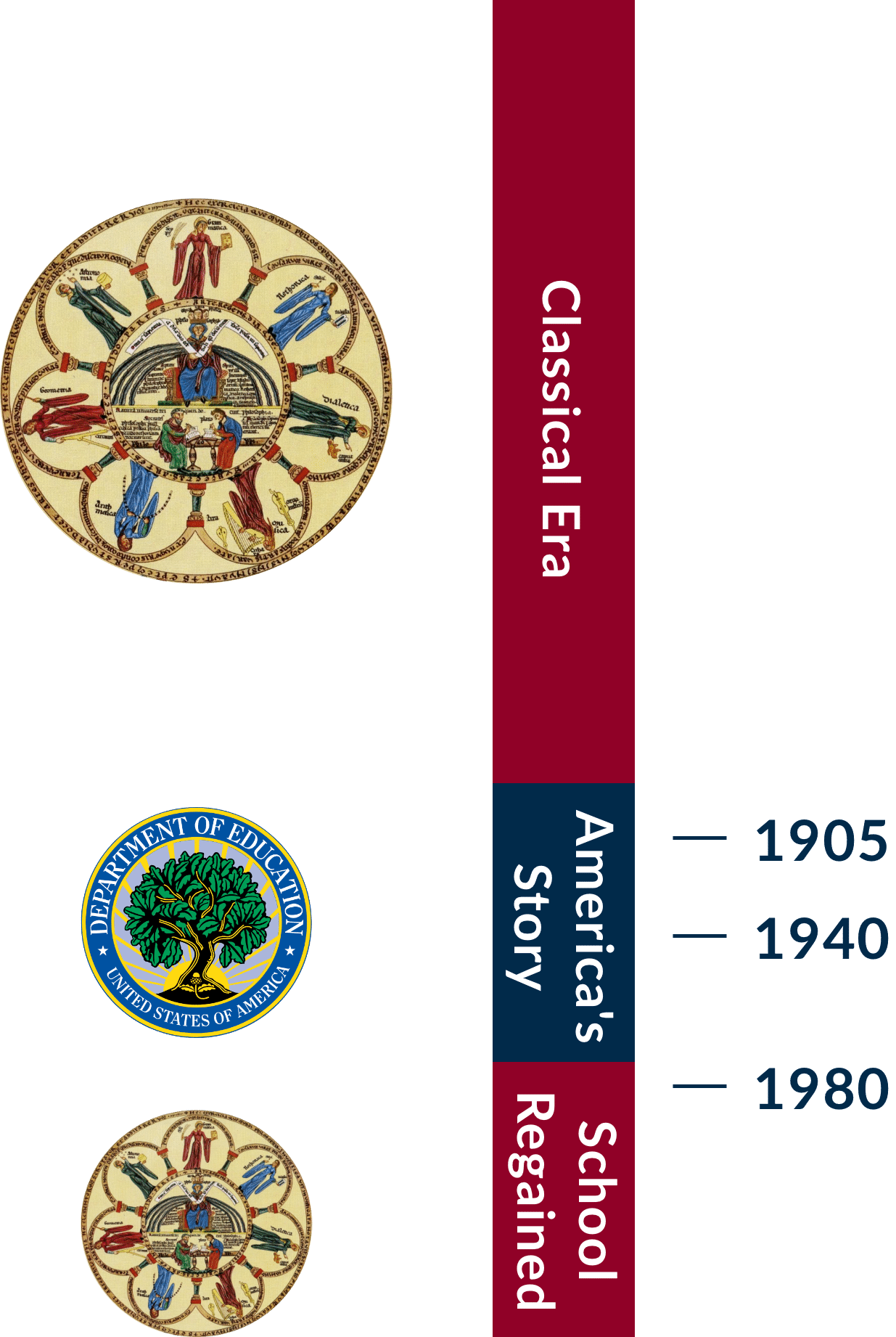History of the ACCS
The ACCS is organized to promote, establish, and equip member schools that are committed to a classical approach in the light of a Christian worldview.
The history of the ACCS is connected to a much bigger story in education:
 In 1980, parents in three different states were inspired to start a new kind of school. At the time, none knew the others existed. This amazing confluence launched the classical Christian movement. Trinity School at Greenlawn in South Bend, Indiana, Cair Paravel School in Topeka, Kansas, and Logos School in Moscow, Idaho, all formed within a year of each other. And, all were dedicated to the restoration of what became known as classical Christian education (CCE). In 1991, Douglas Wilson, founder of Logos School, published Recovering the Lost Tools of Learning. Within a few short years, more than a hundred schools were formed.
In 1980, parents in three different states were inspired to start a new kind of school. At the time, none knew the others existed. This amazing confluence launched the classical Christian movement. Trinity School at Greenlawn in South Bend, Indiana, Cair Paravel School in Topeka, Kansas, and Logos School in Moscow, Idaho, all formed within a year of each other. And, all were dedicated to the restoration of what became known as classical Christian education (CCE). In 1991, Douglas Wilson, founder of Logos School, published Recovering the Lost Tools of Learning. Within a few short years, more than a hundred schools were formed.
By 1994, the Association of Classical Christian Schools (ACCS) was started to help meet the overwhelming demand for training and information on classical Christian education (CCE). By the 2000s, hundreds of classical Christian schools were serving tens of thousands of students. The movement also spilled organically into home schools and other forms of education. This unprecedented restoration changed the landscape of Christian education in the U.S.
Growth was spurred by a rediscovered 1940’s essay, The Lost Tools of Learning, at Oxford by Dorothy Sayers, who decried the loss of the classical tradition, and asked the question,
Is not the great defect of our education today… we fail lamentably on the whole in teaching them how to think?

I. Classical Christian Era
How did classical education build the West, and educate our founding fathers?
From its foundations, Western thought has inspired wonder in the pursuit of ideas and ideals. This wonder, anchored to Christ-centered truth, had purposeful beginnings …
II. Progressive Educators Repurpose American Education
Learn more about radical changes to education at the turn of the 20th century
Today, we live in a culture that was engineered by progressives about 100 years ago. They realized that an ancient concept called the “paideia” was key to cultural influence. Learn how progressives used this tool to change hearts and minds.
III. Era of Modern Education
What are the consequences of progressive ideas in education?
The repurposing of education by the progressives soon payed dividends. With nearly every American in public school, time would prove how culture and society were influenced toward progressive ideas. But the consequences to an educated society were even deeper…
